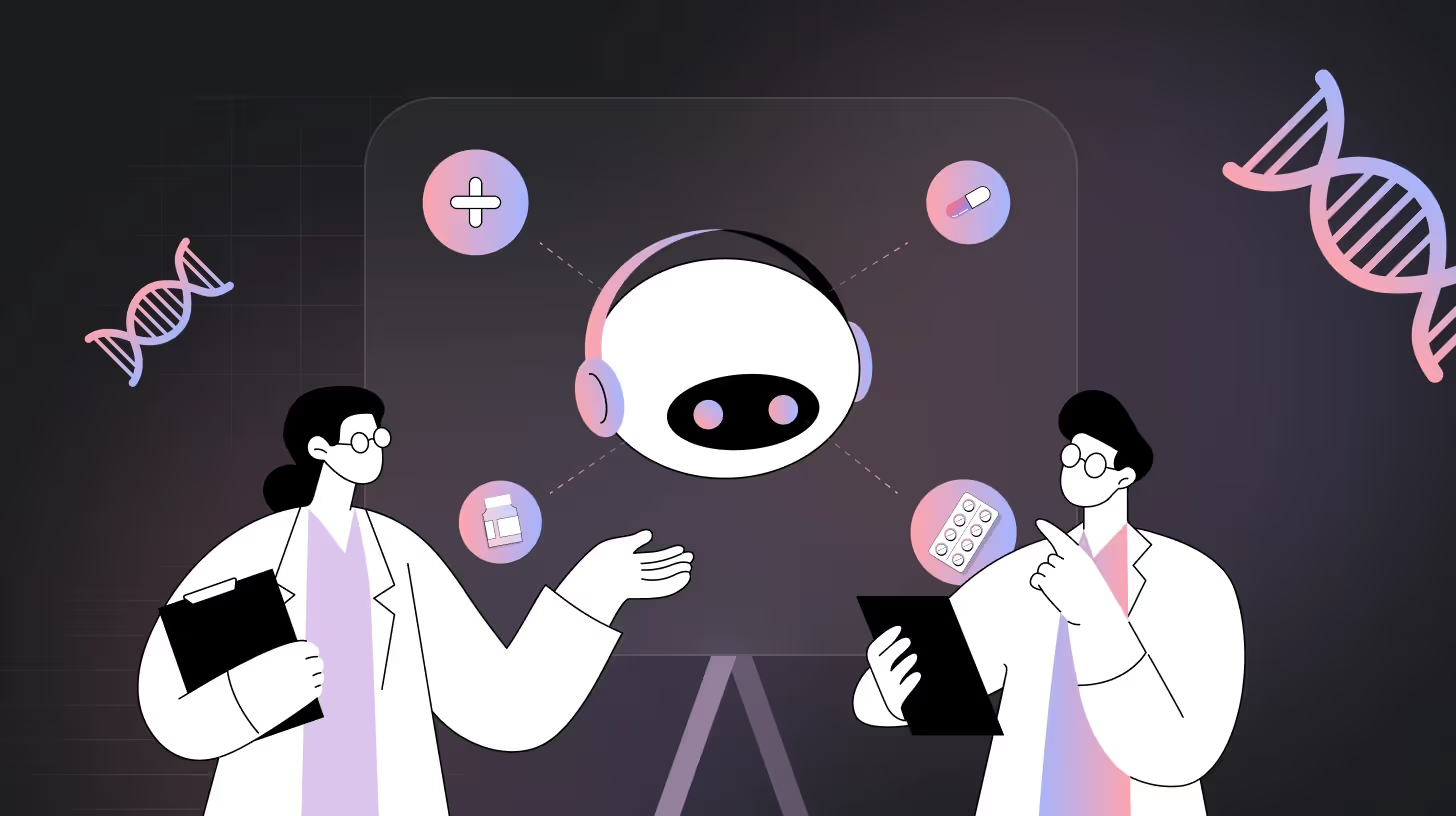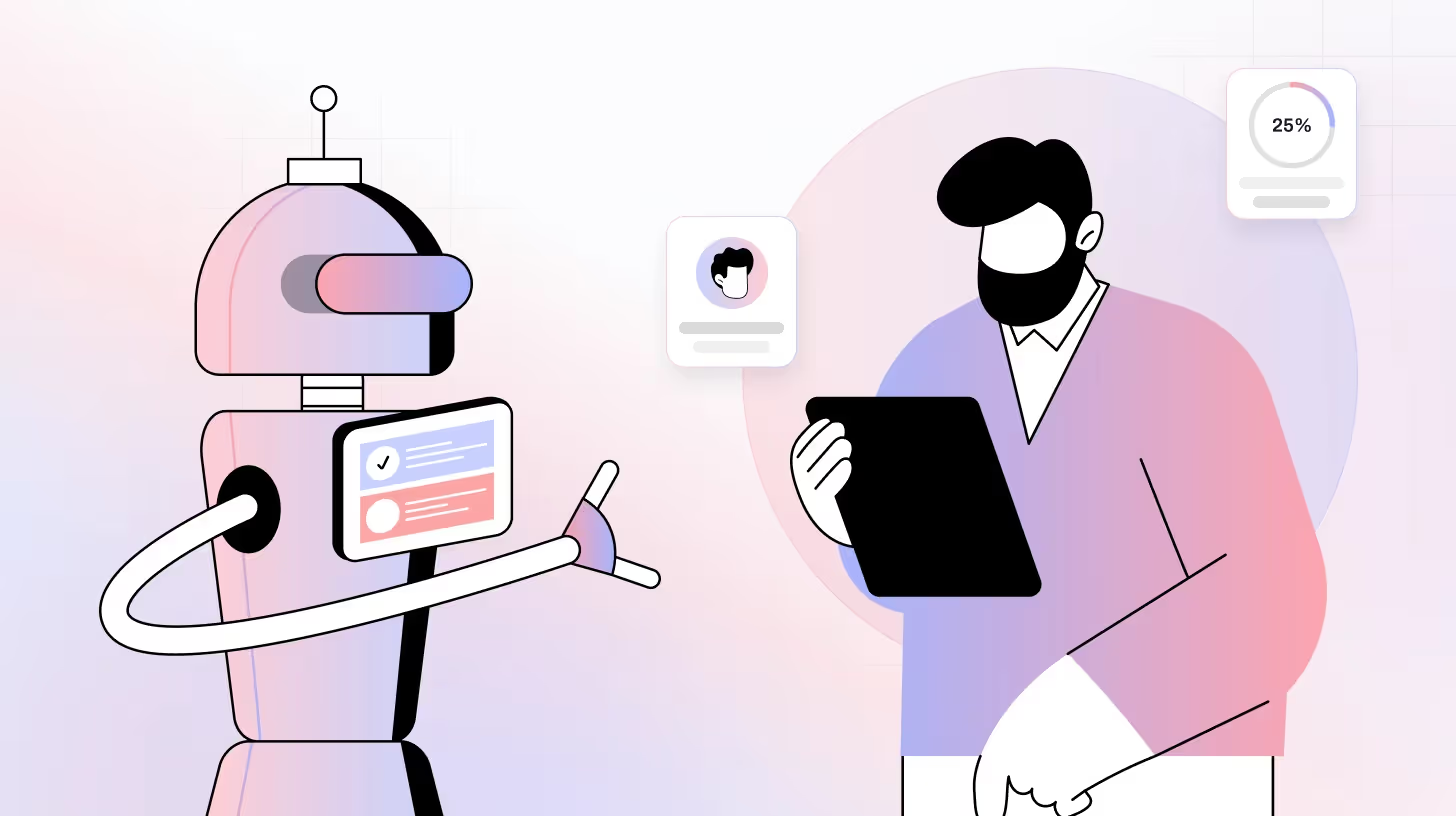How AI in Healthcare Surveys Is Improving Patient Experience at Scale

Every patient has a story one that doesn’t fit neatly into checkboxes.
Traditional healthcare surveys often reduce lived experiences to generic forms and multiple-choice answers. But AI is rewriting that narrative.
Today’s AI-powered healthcare surveys don’t just collect data, they start meaningful conversations. They ask smarter, more relevant questions, adapt in real time, and turn open-ended responses into insights your care team can actually act on.
This isn’t just survey automation. It’s human-centered listening at scale. It’s how we move from impersonal forms to personalized care.
In this blog, we’ll explore how AI is transforming healthcare surveys, why it matters, real-world examples, how to get started, and best practices to unlock deeper patient insights.
What Is AI in Healthcare Surveys?
AI in healthcare surveys refers to the use of artificial intelligence like natural language processing (NLP), machine learning, and conversational AI to gather, analyze, and act on feedback from patients, providers, and staff.
Unlike traditional surveys, which are static and manual, AI-powered surveys are:
- Adaptive: They change based on the responder’s answers.
- Conversational: They feel more like a human chat than a form.
- Smart: They automatically extract sentiment, themes, and urgency.
Benefits of Using AI-Powered Healthcare Surveys
Here’s why more hospitals, urgent care centers, and digital health startups are switching to AI medical Questionnaires:
1. Real-Time Feedback Loops
Instead of waiting weeks for data, AI gives you instant insights. Patients can respond right after treatment while the experience is fresh. Example: A post-appointment AI survey can trigger alerts for low sentiment responses in under 60 seconds flagging potential complaints before they become negative reviews.
2. Smarter Questions, Personalized Paths
AI adapts based on patient answers. If someone says “The wait was too long,” the next question might ask what part of the process took the most time. Unlike static surveys, AI makes patients feel heard by continuing the conversation, not just ticking boxes.
3. Higher Response Rates
Text-based AI surveys that mimic a chat experience can achieve response rates up to 40–60% higher than traditional forms.
Especially effective for:
- Follow-up surveys
- Mobile-first patients
- Non-English speakers (thanks to auto-translation)
4. Scalable Sentiment Analysis
No more sifting through hundreds of free-text responses. AI classifies emotion, urgency, and topic instantly. Want to know how patients feel about bedside manners, facility cleanliness, or billing transparency? AI pulls those trends automatically.
5. Unbiased Insights
AI reduces human bias in survey interpretation by relying on data-driven models. It helps identify what patients are really saying, even if they don’t use clinical terms.
6. Multilingual & Inclusive
AI tools can automatically translate and adapt tone and complexity based on the patient’s demographics, making feedback more inclusive.
Case Study: A Clinic’s AI Survey Success
A mid-sized pediatric clinic implemented TheySaid’s AI-powered surveys and saw impressive results:
- Response rate increased from 28% to 67%
- Time-to-insight dropped from 2 weeks to just 3 hours
- Patients left richer, more thoughtful feedback thanks to conversational UI
- Staff adjusted workflows based on sentiment trends (e.g., parking issues, wait times)
“AI gave us a pulse on patient satisfaction, instantly. We fixed problems we didn’t know we had.” – Clinic Administrator

Real-World Use Cases of AI in Healthcare Surveys
1. Post-Discharge Feedback That Prevents Readmission
Hospitals use AI surveys to check in with patients after discharge. If someone reports lingering pain or confusion about medication, the AI flags it immediately, triggering a follow-up from the care team.
Example: A cardiac unit reduced 30-day readmissions by 18% using automated AI follow-ups that detected early warning signs through simple questions like, “Are you experiencing any shortness of breath today?”
2. Sentiment Analysis in Mental Health Check-ins
Mental health clinics deploy AI surveys that don’t just record answers; they interpret emotions. Sentiment analysis detects anxiety, depression, or burnout in patients and even in therapists themselves. “How are you feeling today?” AI detects negative tone → flags urgent support need.
3. Patient Experience Benchmarking Across Departments
Multi-site hospitals use AI to standardize surveys across departments. Results are automatically grouped by specialty (e.g., oncology vs. emergency) and sentiment-scored, enabling leadership to identify areas for improvement. “ER patients cite long wait times more often than surgical patients.” Action? Adjust triage or staffing.
4. Clinical Trial Participant Feedback at Scale
Pharmaceutical companies use AI-powered surveys to collect real-time feedback from trial participants. Open-text comments are summarized into themes like side effects, compliance issues, and overall trial experience. Instead of waiting months for data, researchers get instant insights, speeding up approvals and improving participant retention.
5. Staff Burnout Monitoring in Real Time
AI surveys help track employee well-being in high-stress environments like ICUs and operating rooms. Weekly pulse surveys are short, empathetic, and analyzed immediately. “I’m emotionally exhausted this week.” AI detects trend → HR alerted → Action plan deployed.
Key Features of AI-Powered Healthcare Surveys
Best Practices for Using AI Healthcare Surveys
AI can do a lot—but to get meaningful insights, it needs the right setup. Follow these best practices to make your healthcare surveys effective, ethical, and action-driven.
1. Always Prioritize Patient Privacy
- Use platforms that are HIPAA-compliant and secure.
- Avoid collecting unnecessary personal information.
- Anonymize responses when possible, especially in research or sensitive health topics.
2. Ask Open-Ended, Context-Rich Questions
AI thrives on natural language input. Go beyond yes/no questions:
✅ “How did you feel after your consultation?”
❌ “Was your consultation good?”
This helps AI summarize emotional tone, satisfaction drivers, and trends.
3. Use Logic Branching Thoughtfully
- Tailor the survey flow based on patient type:
- New patients get onboarding questions.
- Chronic patients receive condition-specific follow-ups.
Tools like TheySaid make logic branching easy, so your surveys feel personal—not robotic.
4. Keep Surveys Short and Targeted
- Respect patients’ time.
- Use AI to summarize long answers, not to justify long surveys.
- Aim for 5–7 questions max with an option to leave open feedback.
5. Use AI analytics to Drive Action
- Don't just collect data—act on it:
- Share AI-generated summaries with care teams.
- Identify areas to improve—like wait times, communication, or follow-ups.
- Let patients know what changed based on their feedback (it builds trust!).

How TheySaid Powers AI in Healthcare Surveys
TheySaid is an AI-powered survey and interview platform that makes it easy for healthcare teams to collect rich, contextual patient feedback without doing manual work.
Here’s why TheySaid is a game-changer:
Conversational AI: Engages patients in human-like interviews
Instant Summaries: Extracts themes, emotions, and action points
Logic Branching: Adapts based on each response
Secure & Compliant: Built with enterprise-grade security and privacy
Multi-Channel Distribution: Send surveys via SMS, email, or web
Whether you’re a hospital administrator, telehealth provider, or healthtech startup, TheySaid helps you understand patients at scale without adding work to your staff.
Create Your First AI Healthcare Survey!
Key Takeways
- Switch to AI-powered surveys to increase response rates and collect deeper insights from patients.
- Use logic branching to personalize the survey flow and reduce survey fatigue.
- Optimize for mobile and multilingual delivery to ensure inclusivity and accessibility for all patient types.
- Enable AI sentiment analysis to instantly flag urgent concerns or dissatisfaction.
- Replace manual analysis with auto-generated summaries that highlight key patient themes.
- Apply insights across care touchpoints like discharge, mental health, routine check-ins, and chronic care programs.
- Train staff to act on AI-generated insights quickly, especially around recurring complaints.
- Reduce bias and improve equity by using AI that can interpret diverse languages and tone fairly.
- Pilot your first AI survey this month and measure improvements in satisfaction, engagement, and care outcomes.
FAQs
Q: Are AI healthcare surveys secure and HIPAA-compliant?
Yes. Most leading platforms like TheySaid are built to comply with healthcare privacy regulations.
Q: Can AI surveys handle multiple languages?
Absolutely. AI tools often include auto-translation and multilingual support to reach diverse patient populations.
Q: What kind of insights can I get from AI surveys?
You’ll get sentiment analysis, trends, urgent flags, patient satisfaction scores, and even recommended actions.
Q: How do AI surveys improve response rates?
They personalize each interaction and reduce survey fatigue by using logic branching and conversational tone.






_%20The%20Future%20of%20SaaS%20Growth%20in%202025.avif)









.svg)